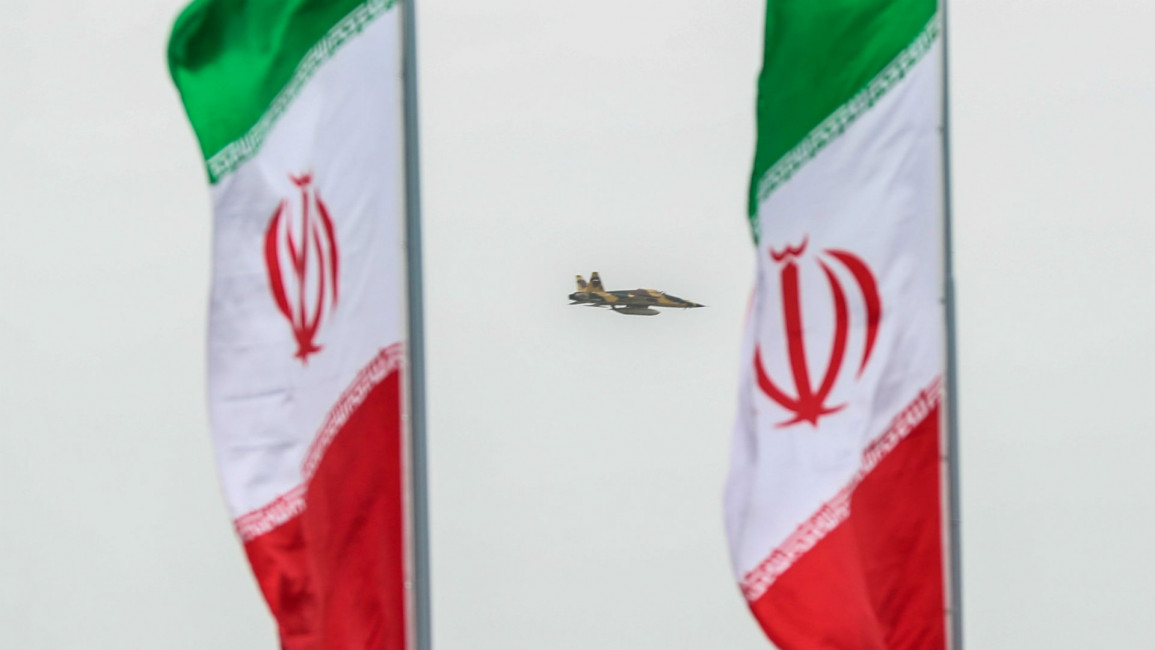Iran warns any country that attacks will be 'main battlefield'
"Whoever wants their land to become the main battlefield, go ahead," Guards commander Hossein Salami told a news conference in Tehran.
"We will never allow any war to encroach upon Iran's territory.
"We hope that they don't make a strategic mistake" as they have before, Salami said, before listing past US military "adventures" against Iran.
Salami was speaking at Tehran's Islamic Revolution and Holy Defence museum during the unveiling of an exhibition of what Iran says are US and other drones captured in its territory.
The comments came after President Donald Trump on Friday announced new sanctions on Iran's central bank, calling the measures the toughest ever imposed on another country by the United States.
"We have just sanctioned the Iranian national bank," Trump told reporters in the Oval Office.
"These are the highest sanctions ever imposed on a country," he said.
The Trump administration has vowed a response after US officials blamed Iran for weekend blasts on Saudi Arabia's oil infrastructure, which caused a sharp hike in global crude prices.
The US already maintains sweeping sanctions on Iran including on its central bank, with anyone who deals with it subject to prosecution.
Read more: Senior hardline cleric says Iran is 'greater than its borders'
Elaborating on Trump's remarks, the Treasury Department said it was authorising sanctions on the central bank not only over Iran's alleged nuclear work but for "terrorism."
Such a designation may be more difficult to lift, even if Trump loses next year's election to a Democrat who wants to ease sanctions as part of a future deal.
"Iran's brazen attack against Saudi Arabia is unacceptable," Treasury Secretary Steven Mnuchin said in a statement.
"Treasury's action targets a crucial funding mechanism that the Iranian regime uses to support its terrorist network, including the Qods Force, Hezbollah and other militants that spread terror and destabilize the region," he said.
The Quds Force conducts international operations for Iran's elite Revolutionary Guards, who are in charge of protecting the clerical regime.
Hezbollah, the Shia militant group and political party in Lebanon, is among Iran's closest regional partners.
The Treasury Department said that the Iranian central bank has provided "billions of dollars" to the two units, which were both previously designated as terrorists by Washington.
The United States also imposed sanctions on Iran's sovereign wealth fund, whose board of trustees include President Hassan Rouhani, as well as Etemad Tejarate Pars, a company that the Treasury Department said had sent money internationally on behalf of Iran's defence ministry.
Trump in June authorized a military strike after Iran shot down a US drone, only to call it off at the last moment.
US troops in the Gulf
On Friday, the Pentagon announced it will deploy additional US troops and missile defence equipment to Saudi Arabia and the United Arab Emirates, as President Donald Trump has at least for now put off any immediate military strike on Iran in response to the attack on the Saudi oil industry.
Defense Secretary Mark Esper told Pentagon reporters this is a first step to beef up security and he would not rule out additional moves down the road. Gen. Joseph Dunford, chairman of the Joint Chiefs of Staff, said more details about the deployment will be determined in the coming days, but it would not involve thousands of US troops.
Other officials said the US deployment would likely be in the hundreds and the defensive equipment heading to the Middle East would probably include Patriot missile batteries and possibly enhanced radars.
The announcement reflected Trump's comments earlier in the day when he told reporters that showing restraint "shows far more strength" than launching military strikes and he wanted to avoid an all-out war with Iran.
Follow us on Twitter: @The_NewArab



